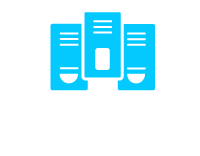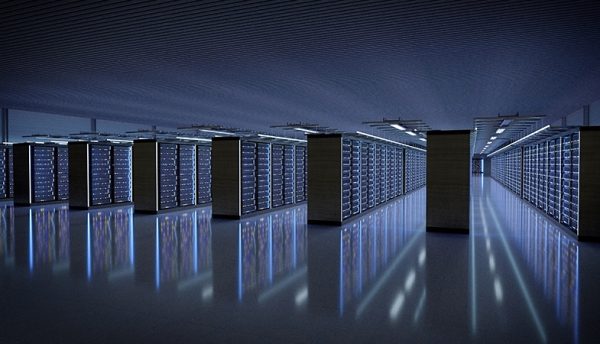Experts in the data centre space highlight some of the anxieties felt across the industry and offer their best practice advice, based on market reports, to address some of these pressing concerns for industry leaders.
A new report concerning data centre outage figures have further underlined the need for facility stakeholders to eliminate performance uncertainty in all equipment, according to Alfa Laval.
The Uptime Institute’s annual 2022 Outage Analysis report noted that one in five organisations reported ‘serious’ or ‘severe’ outages, with the proportion of unplanned downtime costing over US$100,000, rising to 60% from 39% in 2019. Prolonged downtime – lasting 24 hours or more – has similarly risen from 8% of all outages in 2017 to 30% now, sparking questions of how these upward trends can be curbed.
Faced with these worrying statistics, Gemma Reeves, Data Centre Specialist for Alfa Laval, is advising data specifiers not to de-prioritise aspects of a site’s infrastructure when looking for solutions, including cooling. Specifically, she is highlighting the role of certified and accredited equipment in safeguarding against downtime and allowing resources to be allocated to addressing power-related issues.
She said: “When it comes to data centres, any unplanned downtime can have large ramifications both financially and in terms of reputational damage. Yet with a sector where precision is not so much a preference as a prerequisite, all aspects of facility infrastructure must be addressed equally to ensure consistent operations, including the cooling plant.
“So, while power will undoubtedly be the main focus in the wake of this new outage report, this should not come at the cost of selection of high-performance cooling components, including heat exchangers. Equipment certified by third-party testing bodies such as the Air-Conditioning, Heating and Refrigeration Institute (AHRI), should be a key part of any multi-faceted strategy developed to reduce this growing number of serious outages.”
The AHRI’s Product Performance Certification Programme is a voluntary programme administered and governed by the institute to ensure various types of heating, ventilation, air conditioning, refrigeration and water heating products perform according to manufacturers’ published claims. Products tested and certified under the programme, including Alfa Laval’s gasketed, brazed and fusion-bonded plate heat exchangers, can provide much-needed assurance over performance that is critical in data centre environments.
“The ratings manufacturers claim can often widely vary from actual performance, which is undoubtedly a worry for owners, consultants and contractors,” said Reeves. “Though performance certifications such as the AHRI are voluntary, equipment designers and providers should actively seek out these accreditations. Insofar as liquid-to-liquid heat exchangers are concerned, having this level of surety provides crucial peace-of-mind that effective cooling can take place as per the design, and the possibility of outages reduced.”
Also key to addressing some of the challenges in the data centre space is flexibility. According to Aggreko, flexibility is crucial for addressing rising colo energy costs.
Deteriorating bottom line costs for colocation data centres (colos) caused by market uncertainty has further underlined the need for facility stakeholders to consider flexible energy models in the future, according to Aggreko.
It follows a new report from FTI Consulting showing energy prices in UK data centres rising by over 600% since January 2021. With this figure tracking markedly higher than Germany (270%), France (400%) and the Netherlands (360%), the impact on data centre providers using all-in customer models could be sharp and wide-ranging.
Taking this market turbulence into account, Aggreko is encouraging retail colo providers to put steps in place to address what could become a pressing crisis as fixed-price energy contracts expire. Billy Durie, Global Sector Head for Data Centres at Aggreko, said: “Though the UK data centre market has previously been able to use these previously-agreed terms to largely guard against rising energy costs, this state of affairs cannot continue forever.
“Providers in the colo market working under all-in pricing agreements are especially vulnerable to this encroaching problem, so energy professionals in the sector must ask themselves – how can we guard against this cost? Faced with this question, we anticipate moves towards decentralised energy models to mitigate against the fragility of the national grid, especially as current price hikes are not showing signs of easing.”
Energy-related market turbulence identified in FTI Consulting’s report could further supercharge an already-competitive colo marketplace, driven by exponential demand for data centre services. According to Aggreko, current volatility cannot be translated into a race-to-the-bottom cost mentality and the deprioritisation of environmental goals that may ensue.
“It cannot be denied that the data centre market is currently in a delicate position, but these pressing concerns should not be met at the cost of long-term sustainability strategies,” said Durie. “Instead, stakeholders must look for packages and services that can bridge the energy gap while lowering emissions. Green technologies such as Stage V generators and hybrid battery systems, provided through innovative hire strategies, offer an effective way of achieving both objectives.”
Click below to share this article




